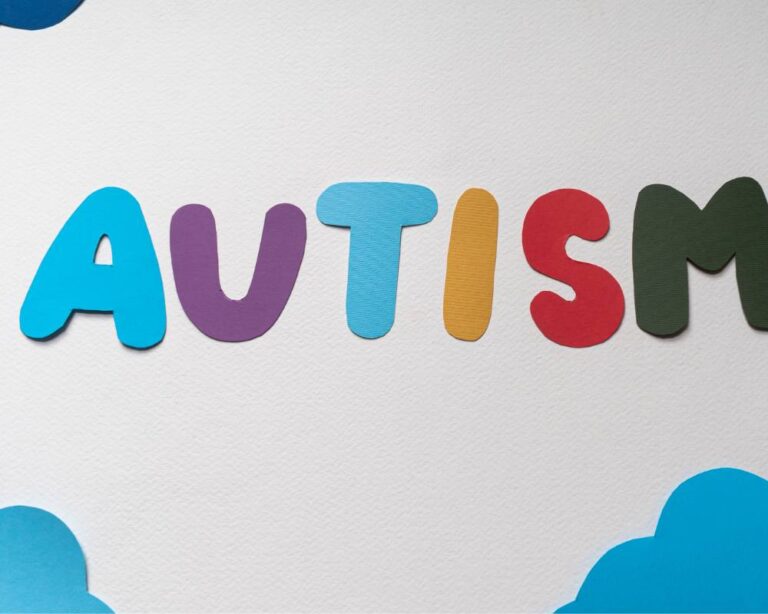ADHD and entrepreneurship could appear as an unlikely pairing, but many successful business owners thrive due to their neurodivergent traits. The restless energy, creative problem-solving, and ability to hyperfocus give ADHD entrepreneurs an edge in fast-paced, unpredictable environments.
While distractions and impulsivity can pose challenges, the dopamine-driven need for novelty fuels innovation and risk-taking. Acknowledging how ADHD shapes thinking patterns unlocks ways to turn perceived weaknesses into strengths. For those who utilize it correctly, an ADHD brain can be a launchpad for groundbreaking ideas and resilient leadership.
ADHD Entrepreneurial Brain
Why do so many entrepreneurs with ADHD excel despite the challenges? The answer lies in the unique wiring of the ADHD brain, which often fuels innovation and success.
People with Attention Deficit Hyperactivity Disorder tend to consider outside the box, embracing risks and spontaneity that others avoid. Their dopamine-seeking behavior drives them toward novel ideas, making them natural problem-solvers in fast-paced business environments.
Hyperfocus, a common ADHD trait, allows them to delve deep into tasks, mastering skills quickly and creating groundbreaking solutions. While distractions and disorganization can be hurdles, many entrepreneurs learn to channel their energy strategically.
The resilience built from managing ADHD’s ups and downs also prepares them for the unpredictability of running a business. These traits combine to turn perceived weaknesses into competitive advantages.
Harnessing Hyperfocus for Business Growth
The ADHD brain’s ability to hyperfocus isn’t just a fleeting burst of attention—it’s a powerful tool for business growth when used intentionally. Entrepreneurs with ADHD can channel this intense concentration into productivity, turning innovative business ideas into reality. Through zeroing in on tasks, they master skills quickly and spot opportunities others miss.
| Hyperfocus Strengths | Business Impact |
|---|---|
| Deep concentration | Faster problem-solving |
| Rapid skill mastery | Competitive edge |
| Laser-like detail focus | Higher-quality outputs |
Whenever directed strategically, hyperfocus fuels entrepreneurial success. It allows for uninterrupted work on high-priority projects, leading to breakthroughs. The key is structuring tasks to align with natural focus cycles, ensuring energy isn’t wasted on distractions. This approach transforms ADHD traits into assets, driving growth and innovation.
Turning Risk-Taking Into Competitive Advantage
Entrepreneurs with ADHD often find themselves drawn to risk—not recklessly, but with a unique willingness to welcome uncertainty that can set them apart. This natural inclination toward risk-taking fuels their entrepreneurial ventures, allowing them to pursue bold ideas others may avoid.
While setbacks are inevitable, their resilience helps them bounce back faster, turning challenges into stepping stones. Their passion-driven focus and high energy levels, when directed efficiently, boost productivity and persistence in achieving business goals. Rather than viewing ADHD traits as obstacles, successful entrepreneurs leverage them as strengths.
The spontaneity and creativity tied to ADHD often lead to innovative solutions, giving them a competitive edge. Through embracing their natural tendencies, they transform potential weaknesses into powerful tools for growth and success in business.
Building ADHD-Friendly Productivity Systems
How can someone with ADHD stay productive as their brain constantly craves novelty and resists routine? Effective Time Management starts with productivity hacks tailored to their needs. Breaking tasks into smaller steps and using to-do lists with clear priorities helps maintain focus. Productivity apps like timers or task managers can provide structure while permitting flexibility. Visual reminders and color-coding make routines less monotonous.
A clutter-free workspace minimizes distractions, and scheduled breaks prevent burnout. Physical movement, like short walks, can recharge energy. Accountability partners or coaches offer external motivation, keeping goals on track. Through blending structure with adaptability, ADHD entrepreneurs can work with their brain’s rhythm instead of against it, turning challenges into strengths for sustained productivity.
Leveraging Creativity for Innovative Solutions
Often, people with ADHD struggle with routine but thrive as creativity takes center stage. Their divergent thinking allows them to generate multiple unique solutions, breaking free from conventional norms.
This innovative approach fuels entrepreneurial ideas that challenge the status quo, leading to groundbreaking products and services. Creative thinking, combined with hyperfocus, enables intense dedication to developing these ventures.
While traditional structures might feel restrictive, ADHD minds excel in unstructured, dynamic environments where originality thrives. Through embracing their natural tendencies, entrepreneurs with ADHD can transform perceived weaknesses into strengths, leveraging their ability to discern possibilities others overlook.
The key lies in channeling this energy into structured yet flexible frameworks that nurture innovation.
Managing Distractions and Impulsivity Effectively
Entrepreneurs with ADHD can improve focus through establishing structured daily routines that minimize unpredictability. Mastering prioritization techniques helps in identifying critical tasks and avoiding impulse-driven decisions.
Mindfulness practices, such as mindful breathing, strengthen self-control and reduce impulsive reactions in high-pressure situations.
Structured Daily Routines
Many people with ADHD find that a well-structured daily routine is key to keeping distractions and impulsive decisions in check. Entrepreneurs with ADHD often struggle with ADHD traits like impulsivity, but structured daily routines help channel their ability to hyperfocus productively. Breaking tasks into smaller steps and scheduling focused work blocks can prevent overwhelm.
| Challenge | Solution |
|---|---|
| Morning decision fatigue | Fixed wake-up & prep routine |
| Unplanned distractions | Time-blocked deep work sessions |
| Task overwhelm | Micro-tasks with clear deadlines |
Using productivity tools and scheduling breaks maintains energy. Consistency reduces stress, making it easier to stay on track.
Prioritization Techniques Mastery
Building on the stability of structured daily routines, mastering prioritization techniques helps entrepreneurs with ADHD tackle distractions and impulsivity head-on. The Eisenhower Matrix is a key strategy, sorting tasks through the lens of urgency and importance to guide decision-making and keep focus sharp.
Short, timed work sessions like the Pomodoro Technique create manageable bursts of productivity, reducing the temptation to jump between tasks. Productivity apps such as Todoist or Trello visually organize responsibilities, making it easier to stay on track. Removing distractions—like silencing notifications or using noise-cancelling headphones—creates a workspace tailored for sustained attention.
These strategies empower entrepreneurs with ADHD to channel their energy purposefully, turning potential hurdles into stepping stones for success.
Mindfulness for Impulse Control
A racing mind can feel like a browser with too many tabs open—each thought competing for attention, making it hard to focus on what really matters. For ADHD entrepreneurs, mindfulness practices offer a way to strengthen impulse control and self-regulation. Simple techniques like mindful breathing or body scans create mental space, helping them pause before acting impulsively. Cognitive therapy blended with mindfulness trains the brain to recognize triggers and choose intentional responses.
| Technique | Purpose | Frequency |
|---|---|---|
| Mindful Breathing | Calms hyperactivity | 3-5x daily |
| Body Scans | Reduces distractibility | Morning/Night |
| Guided Visualizations | Refines focus | Before tasks |
| Cognitive Reflection | Identifies impulsive patterns | Weekly |
| 5-Second Pause | Delays reactive decisions | As needed |
These strategies cultivate awareness, turning chaos into clarity.
Success Stories of ADHD Entrepreneurs
Many successful entrepreneurs with ADHD have turned their challenges into advantages, proving that traits like creativity and risk-taking can fuel business success. Figures like Sir Richard Branson and Daymond John highlight how ADHD traits, as they are managed well, can drive innovation and resilience.
Their stories show that ADHD doesn’t have to limit potential—it can even become a competitive edge.
Famous ADHD Founders
Entrepreneurs with ADHD have turned their unique traits into powerful advantages, proving that neurodiversity can fuel innovation and success. In the entrepreneurial world, ADHD entrepreneurs like Richard Branson—founder of the Virgin Group—demonstrate how energy and unconventional contemplation drive entrepreneurial success.
Simone Giertz transformed her ADHD curiosity into a thriving YouTube career, designing quirky inventions. Paul Orfalea’s fast thinking built Kinko’s into a copy industry giant. Daymond John channeled his hyperfocus into FUBU and Shark Tank investments. Justin Wolff’s Inkology thrived due to his ADHD-fueled creativity.
These success stories highlight how ADHD traits, often seen as obstacles, can spark groundbreaking ideas when harnessed effectively. Their expeditions inspire others to view neurodiversity as an asset, crafting businesses that reflect their dynamic minds.
Turning Struggles Into Strengths
The stories of famous ADHD founders show how neurodiversity can spark innovation—but what transpires as the attributes perceived as difficulties become a superpower? Entrepreneurs like Sara Lee transformed her unpredictable focus into creative problem-solving skills, designing a fitness app for unconventional thinkers.
John Doe turned organizational struggles into adaptability, fueling his sustainable energy startup’s rise. Samantha Wong channeled hyperfocus into culinary breakthroughs, proving ADHD-related intensity can redefine industries. Alex Kim’s risk-taking business traits led to disruptive tech, while Emma Davis used personal growth from past failures to coach others.
These founders reshaped their entrepreneurial journey through reframing challenges as strengths. Their experiences highlight how ADHD traits, once hurdles, can drive resilience, innovation, and success when strategically embraced.
Developing Resilience in Business Ventures
While the unpredictable nature of entrepreneurship can overwhelm even the most seasoned business owners, those with ADHD often find their stride in chaos. Their natural adaptability and problem-solving traits make them uniquely equipped to handle setbacks, turning failures into growth opportunities. Building resilience in business requires a team that complements these strengths, fostering mental health and sustainable success.
| ADHD Trait | Business Benefit |
|---|---|
| High energy | Sustained effort during challenges |
| Risk-taking | Willingness to innovate |
| Hyperfocus | Intensive examinations of solutions |
| Creativity | Unique problem-solving |
| Adaptability | Quick pivots in crises |
Conclusion
For the ADHD entrepreneur, the same traits once seen as stumbling blocks—distraction, impulsivity, restlessness—now look like Swiss Army knives for business. They’ve learned to harness quirks into superpowers, riding the ADHD brain like an untamed steed rather than fighting against it. While others stick to rigid plans, these founders welcome the beautiful chaos of neurodiversity, proving that considering differently isn’t just okay—it’s often the winning hand in entrepreneurship’s high-stakes poker game.




